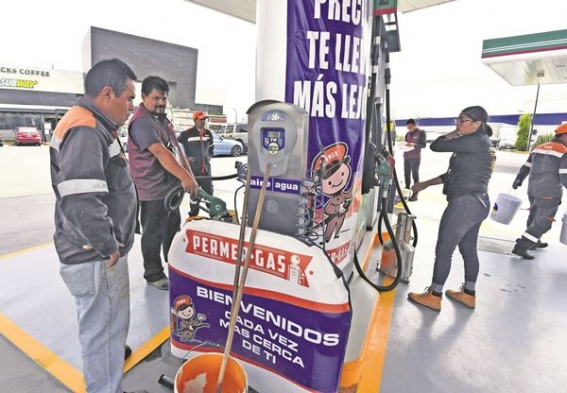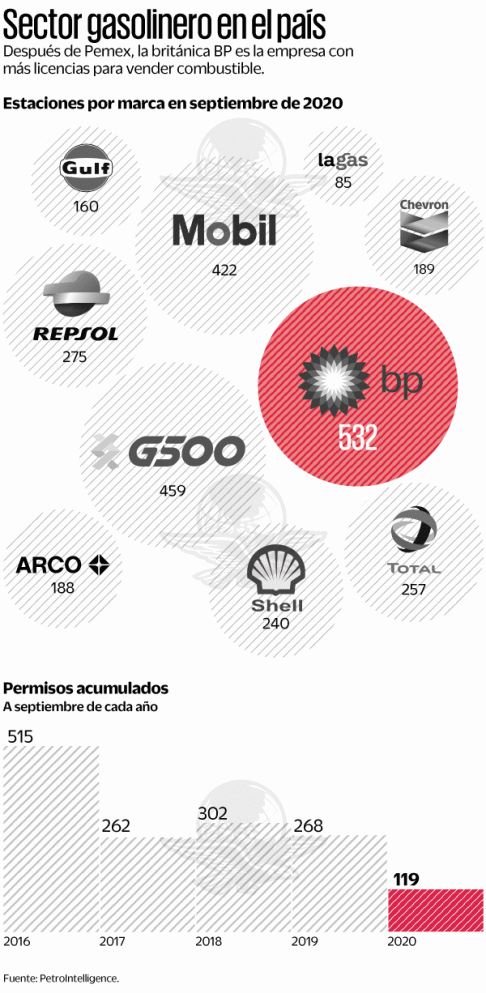The main oil companies in the United States grouped in the American Petroleum
Institute (API, for its acronym in English), requested the intervention of the US Secretary
of State Mike Pompeo to find a diplomatic solution to the discriminatory practices they
face in Mexico.
Through a telephone call between Pompeo and the president and CEO of the API, Mike
Sommers, made this Thursday, November 5, the businessmen of the US oil industry asked
the third most important man in the US cabinet, “a direct diplomatic commitment on these
issues “with the Mexican government, to which the official agreed to make it” a priority of
the State Department.
The content of the call, to which EL UNIVERSAL had access, was shared with the
Subcommittee on International and Corporate Commercial Strategy of the API and several
important issues that affect the US oil industry were raised in relation to the policies of the
President’s government. Andrés Manuel López Obrador and regulatory bodies of the
sector.
The delay and cancellation of permits for new service stations, for the importation of
gasoline and diesel, for the storage of petroleum products, for the construction of liquefied
natural gas (LNG) infrastructure and even for the closure of gasoline stations due to minor
infractions was addressed.
At the end of last month, a group of 43 US congressmen sent a letter to President Donald
Trump, in which they expressed their concern about the regulatory changes in the Mexican
energy sector, arguing that they obstruct the investments of companies from the
neighboring country
In the document, legislators from both parties explained that the decisions made by the
Mexican authority “violate and go against the spirit” of the Treaty between Mexico,
The United States and Canada (USMCA), in addition to being concerned that the “Historic”
energy reform of 2014, which allowed private participation in the energy sector.
The letters are added to others sent by chambers of commerce, ambassadors and
legislators against the changes applied in the energy sector, such as the publication of a
policy of the government of President Andrés Manuel López Obrador that stopped the
tests of renewable energy plants.
They report affectations
Sommers again raised the discriminatory practices of Mexico towards the energy
companies of the United States in order to favor the state-owned Petróleos Mexicanos
(Pemex), which damages current and future hydrocarbon exports from that country to the
Mexican market, after a first letter that circulated on June 11 in which the group of oil
companies had already expressed their concern to Pompeo and the secretaries of
Commerce, Wilbur Ross, and of Energy, Dan Brouillette.
He referred to practices that he considers discriminatory and that involve both API member
companies, as well as other foreign oil companies that operate in Mexico due to the
difficulty in obtaining permits from the Energy Regulatory Commission (CRE) for new
service stations, assignment of modifications or permits for the sale of petroleum products
to the public.
According to sources in the energy sector, as of September this year about 300 permits for
new service stations are awaiting approval and 150 more are requests for the transfer of
modifications or permits
The relative paralysis in the granting of permits by the CRE is reflected, according to
information provided by different business groups in the gas oil sector consulted, in that, in
one year and nine months of the current administration, the number of permits issued will
be has reduced by 71.3%.

The strategy is based on strengthening Pemex’s presence in the market for the
commercialization of petroleum products, including gasoline and diesel, since with the
opening of the sector promoted by the energy reform, of 11,578 service stations that made
up the Pemex Franchise in 2016, as of September of this year there are 7,772, due to the
greater penetration of national and foreign private businesses with brands such as
ExxonMobil, Chevron, Shell, BP, Repsol, Gulf, Valero, Tesoro, Total or Phillips 66, among
others.
They even cited that previously when a gas oil entrepreneur decided to leave the Pemex
Franchise, only a letter of mutual agreement was required to terminate the relationship, 30
days in advance of the date of leaving the brand, without Pemex’s objection.
Now, Pemex demands the registration of the product and the molecule that the CRE
authorized as a pressure measure, or to tighten the requirements to avoid ending the
commercial relationship, explain the business groups consulted.
Excessive verification
Another of the observations made in the API phone call with Pompeo has to do with the
closure of dispensaries and service stations due to minor or non-existent infractions by the
Federal Prosecutor’s Office for the Consumer (Profeco).
In this regard, the head of Profeco, Ricardo Sheffield, has stated that he will toughen
verification measures in gas stations to avoid irregularities, such as the entry into force on
October 8 of the NOM-005-SCFI-2017 Measurement Instruments-System for
measurement and dispatch of gasoline and other liquid fuels with a maximum output of
250 L / min-Specifications, test and verification methods, which requires updating or,
where appropriate, replacement of the so-called fuel pumps or dispensers in the gas
stations in the country.
The Mexican Association of Service Station Providers (AMPES) explained that it will cost
businessmen in the sector around 300 million dollars to make the change, since the
replacement of a dispenser has a price of between 6,400 and 8,500 Dollars.
Many of the service stations have not achieved the change due to a lack of equipment,
given that the Covid-19 pandemic caused the suppliers of this equipment to delay production and, consequently, the service stations have not been able to comply with the
standard.

Storage problems
Sommers notified Pompeo that another difficulty faced by US oil companies in Mexico is
the requirement of the “obligation” to have a minimum stock of fuel storage of five days,
“since Pemex owns and operates most of the capacity of certified storage and permits for
the construction of new storage by private parties is being hampered by delays in their
granting ”.
He also referred to the cancellation or delay of the import permits for gasoline and diesel
that US companies and investors have requested from the corresponding authorities.
He denounced that “these rejections or delays come from the Ministry of Energy (Sener)”,
headed by Rocío Nahle.
On October 3, EL UNIVERSAL published that the Sener will review the import permits
granted since January 1, 2016, and will cancel those that have not moved oil in the last 22
months.
In addition, it plans to tie new permits to commitments for 20 years and not just one, as
was done before, and that the applicants demonstrate that they own part of the
the infrastructure of storage centers on a volume basis. That is, it forces future importers to
disburse or partner with investors who plan to build storage systems for petroleum
According to the General Directorate of Petroleum Products of the Sener, as of March 31
of this year the agency delivered 4 thousand 45 import and export permits. Of this total,
216 are imported and are in force: 103 are for gasoline, 68 for diesel, 16 for jet fuel and
gas planes, 24 for liquefied petroleum gas (LP), and five for crude.
According to industry sources, the decision is aimed at returning to Pemex the
the preponderance in foreign purchases of automotive fuels, since with the opening to imports,
the private initiative controls 20% and 36% of gasoline and diesel purchases, respectively.
In the call, Mike Sommers alluded to delays or cessation of the construction of new
facilities such as LNG terminals or storage of refined products by various Mexican
regulatory agencies and bodies
Source: eluniversal.com.mx



